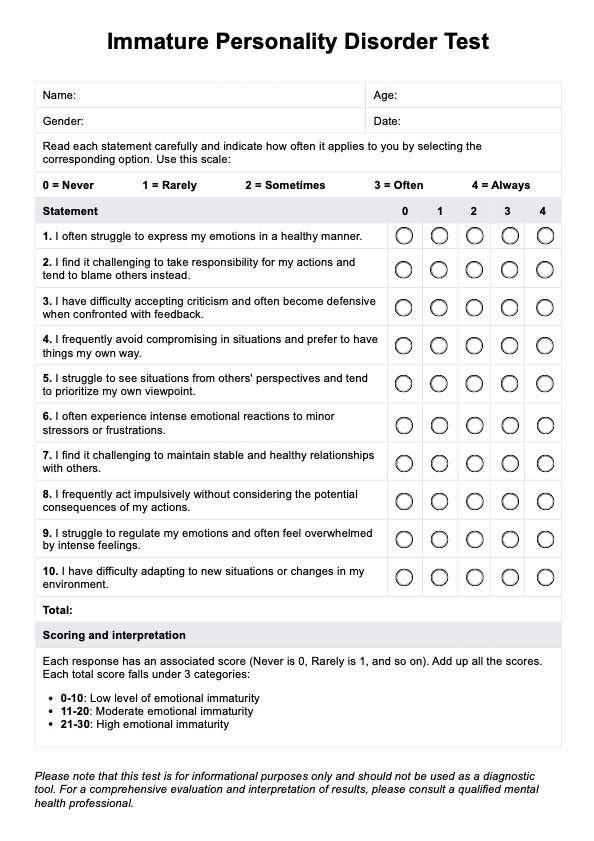Dealing with an emotionally immature person involves setting clear boundaries, maintaining patience, and practicing empathy in communication. It's important to encourage self-reflection and offer support while also prioritizing your own well-being.

Immature Personality Disorder Test
Use our free test to screen for emotional immaturity. Try out our digital, customizable template today.
Immature Personality Disorder Test Template
Commonly asked questions
Distinguishing between immaturity and narcissism depends on the individual's patterns of behavior and underlying motivations. Immature individuals may lack emotional awareness and struggle with empathy, while narcissists typically exhibit grandiosity, manipulation, and a lack of empathy toward others.
Yes, with self-awareness, therapy, and personal growth efforts, emotionally immature people can change and develop greater emotional maturity over time. However, change requires dedication and willingness to confront and address underlying issues.
EHR and practice management software
Get started for free
*No credit card required
Free
$0/usd
Unlimited clients
Telehealth
1GB of storage
Client portal text
Automated billing and online payments











